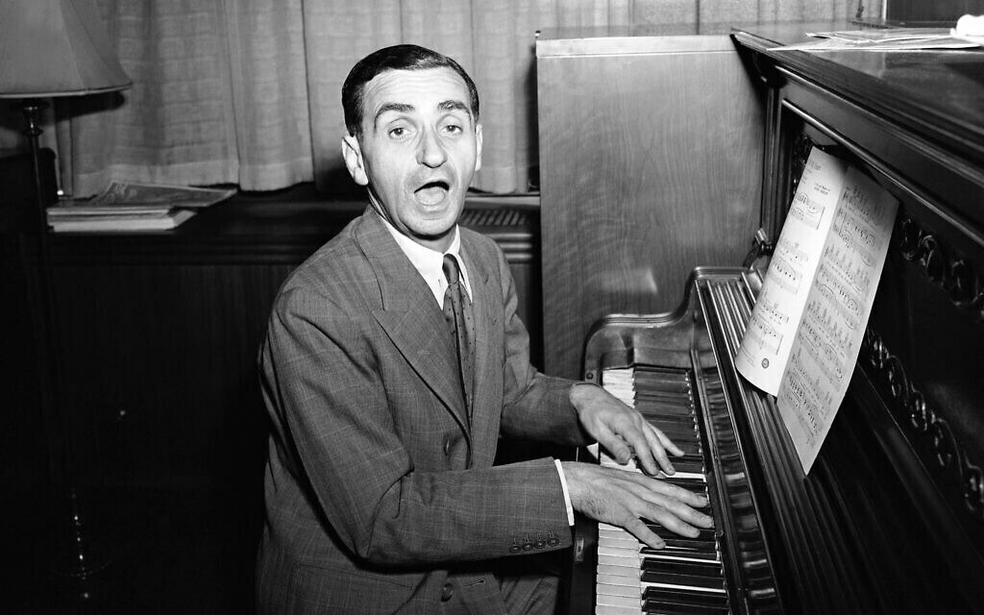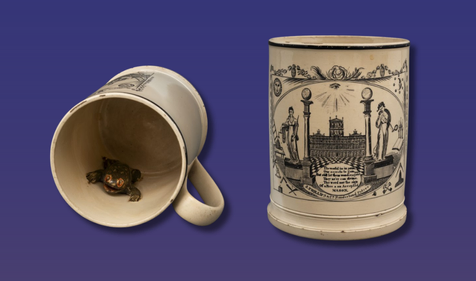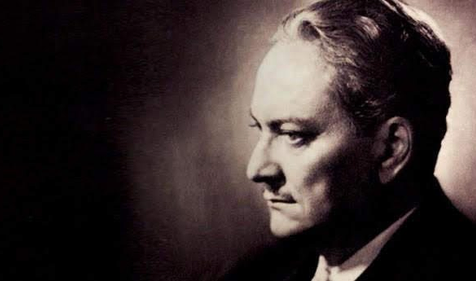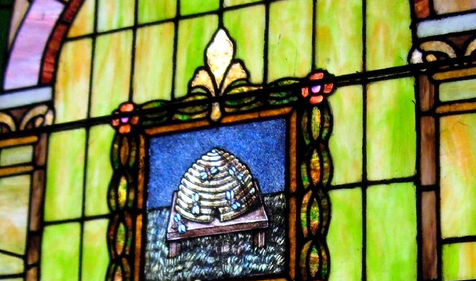This article is a journey deep into the life, music, and Masonic journey of one-of-a-kind composer, Irving Berlin.
In 1971, Ill. Brother Charles E. Green, 33°, wrote of Irving Berlin:
The story of Brother Irving Berlin is one of genius rising above the devastating discouragements of extreme poverty in its environment. It is a story of a man who felt and wrote melodies – songs that lifted him out of the slums into a special niche among the greatest men of our country. [Charles Green. “Irving Berlin’s Unforgettable Melodies.” The Northern Light, Apr. 1971, pp. 10-11, 19.]
Reflecting on the extraordinary life and many accomplishments of Irving Berlin cannot help but inspire. To understand his motivations and aspirations is to recognize the nature of a true Freemason. A prolific composer of the 20th century, he wrote many timeless classics, including “White Christmas”, “Cheek to Cheek” and countless more. It is estimated he wrote over 1,500 songs, and despite his extraordinary success, Berlin was an unfailingly humble and generous man. In addition to his study of musical science, he was an ardent philanthropist and proud Brother of the Scottish Rite.
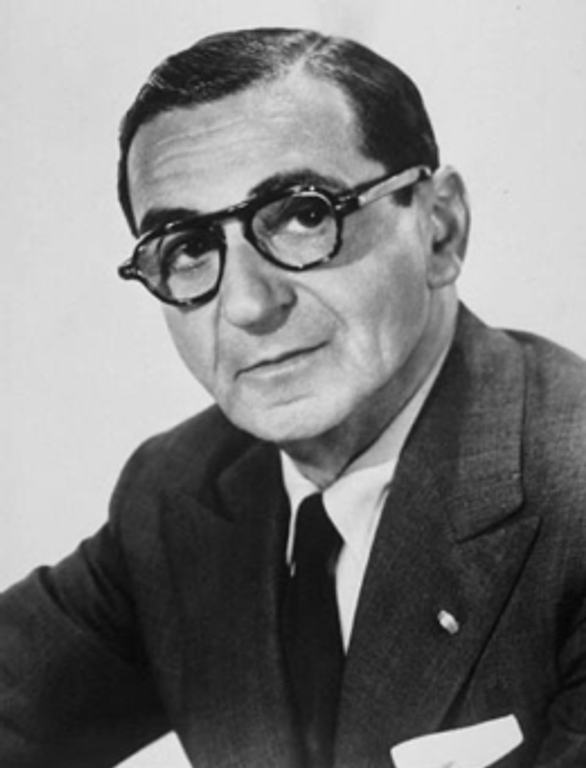
Revered by his contemporaries, composer George Gershwin referred to Berlin as "the greatest songwriter that has ever lived." In the words of composer Jerome Kern, "Irving Berlin has no place in American music—he is American music.”
Early Life of Irving Berlin
Born Israel Beilin on May 11, 1888, in a tiny village of Eastern Russia called Tyumen, Irving was one of eight children to Leah and Moses Beilin. His family was Jewish, with his father serving as the cantor at their local synagogue. To escape the pogroms and persecution against Jews in Russia, the family emigrated through Ellis Island and settled in the Lower East Side of New York City in 1893. Later in life, the only memory of his years in Russia Irving could recall was of his childhood home burning to the ground while his family watched from the road.
His family struggled to settle in their new home as his father could not continue working as a cantor. When Israel was only 13, his father passed away, and the responsibility fell to him to begin providing for his family. He took a job as a newspaper boy for The Evening Journal and was soon enchanted by the music drifting out of the establishments lining the busy streets.
Before long, Israel took the singing skills he had learned from his father and used them. He began singing to people on the street or customers in popular restaurants, including the birthplace of Vaudeville, The Pelham Café. It was here that he co-wrote and published the song "Marie Of Sunny Italy,” which was popular amongst patrons. When the piece was published and printed, the printer made a mistake, and the name given to him on the cover was Irving Berlin. It was from these humble beginnings that his epic career launched.
From Hollywood to Broadway
Now known as Irving Berlin, the young composer continued to work diligently on writing music. Ultimately, a staff member from the music publisher Harry Von Tilzer Company named Max Winslow got Berlin a job after noticing his musical talents. As a self-taught piano player, Berlin was undeterred by his inability to read music and worked diligently, churning out dozens of songs over the next few years, including his first hit called “Alexander’s Ragtime Band.” The song topped the charts and remained there as big names such as Louis Armstrong and Bing Crosby covered it in the years to come.
Berlin’s devotion to his craft was not to be stopped, even during service in World War I. While serving, he famously wrote “God Bless America,” a popular song many people called to replace “The Star-Spangled Banner” as the national anthem. Berlin’s response notable, saying, “There’s only one national anthem, which can never be replaced.”
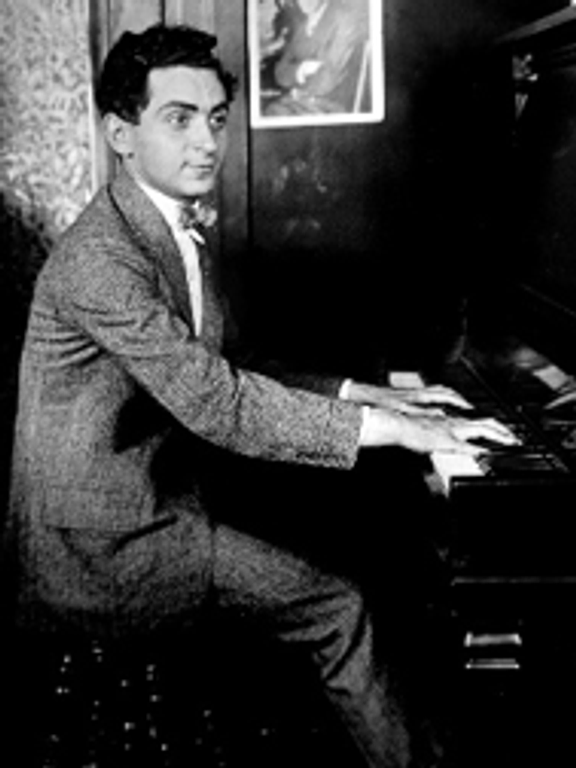
As his career blossomed, Irving Berlin would ultimately write thousands of songs, 19 musicals, including Easter Parade and Annie Get Your Gun, and score 18 films. The standout tunes among these are almost too numerous to count, with famous compositions such as "Anything You Can Do I Can Do Better," "There's No Business Like Show Business," and "Puttin' on the Ritz."
Behind the Scenes
Early on in his career, Berlin married his first wife, singer Dorothy Goetz. Sadly, Dorothy contracted pneumonia and typhoid fever while on their honeymoon to Cuba and died five months later. In the wake of her passing, Berlin wrote one of his earliest hits, “When I Lost You.”
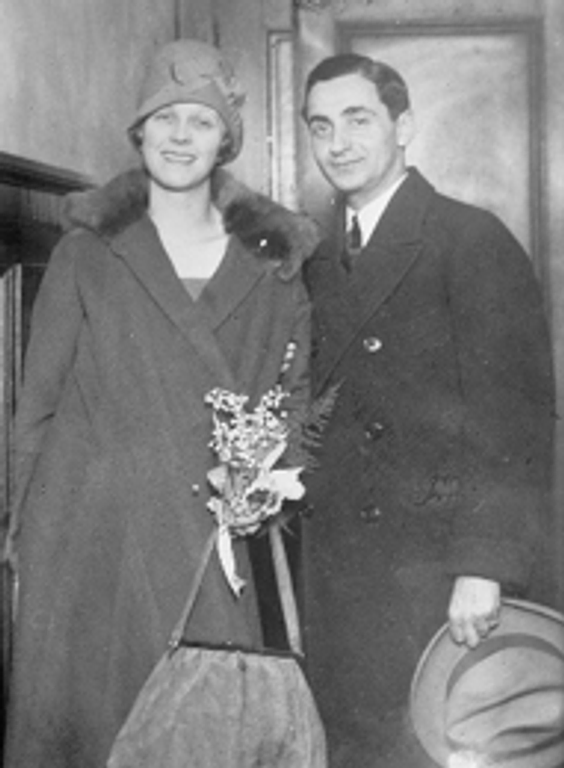
It would be more than ten years before Bro. Irving married again. In 1926, he wed his second wife, Ellen Mackay, a writer published in The New Yorker. The two would remain married for the remainder of their lives and gave birth to three daughters and one son who died in infancy.
Irving Berlin as a Mason
Irving Berlin became a member of the Freemasons in 1910 when he was a young man. He was raised a Master Mason in Munn Lodge No. 190 in New York City on June 3, 1910. He joined the Scottish Rite and received the degree of Sublime Prince of the Royal Secret, 32°, on December 23, 1910. A month later, he joined the Shriners and became a Noble of Mecca Temple, A.A.O.N.M.S. on January 30, 1911. By 1936, he was designated a lifetime member of both organizations.
As a Mason, Bro. Berlin committed himself to our core principles and worked diligently to help others. He had an immensely generous spirit, with some estimates projecting he was responsible for raising over $100 million for several charitable initiatives in his lifetime. In honor of his humanitarian efforts, he was honored in 1944 by the National Conference of Christians and Jews for “advancing the aims of the conference to eliminate religious and racial conflict.”
Irving Berlin: Awards and Accolades
Over the years, Berlin received much recognition for his many compositions. In 1943, he won the Academy Award for Best Original Song for "White Christmas" in Holiday Inn. He also won several Tony Awards and a Grammy Lifetime Achievement Award. His place in the entertainment world is sealed with his star on the Hollywood Walk of Fame.
Additionally, he received awards from three different sitting presidents throughout his career. President and fellow Freemason Harry S. Truman awarded Berlin the U.S. Army Medal of Merit from General George Marshall. Berlin was awarded the Congressional Gold Medal in 1954 from President Dwight D. Eisenhower for contributing many patriotic songs, including "God Bless America.” Decades later, in 1977, he received the Presidential Medal of Freedom from President Gerald Ford for capturing “The fondest dreams and deepest emotions of the American people in the form of popular music."
Conclusion
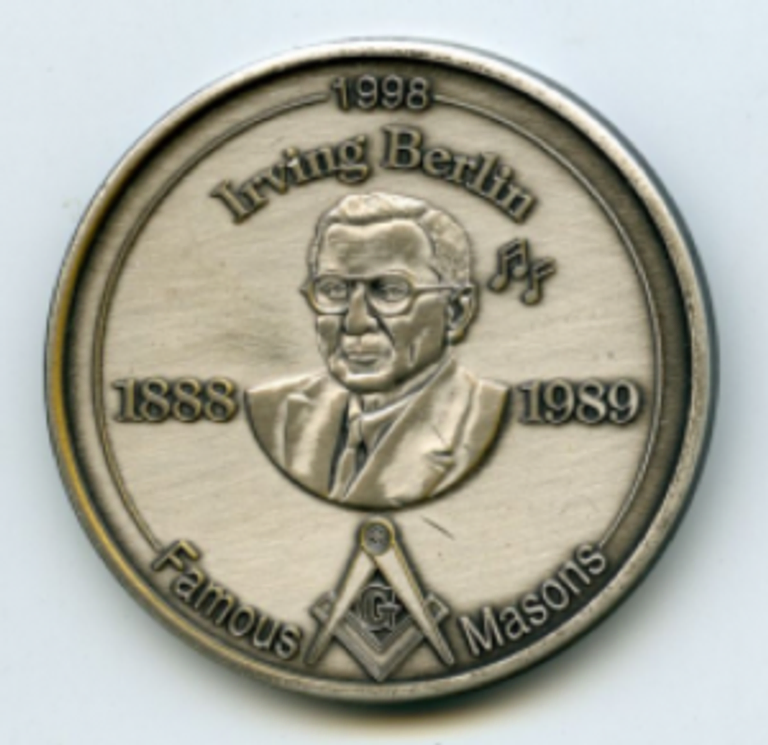
The remarkable life of Irving Berlin spanned more than a century before he passed to the Eternal Grand Lodge in 1989 at the age of 101. Broadway playhouses commemorated his death by dimming their marquee lights before curtain time. President George H. W. Bush participated in a public singing of “God Bless America” before describing Berlin as "a legendary man whose words and music will help define the history of our nation."
Today, countless artists have covered Berlin’s works, including Elvis Presley, Lady Gaga, Frank Sinatra, Barbara Streisand, Bob Dylan, Willie Nelson, Billie Holiday, Ella Fitzgerald, and many others. Through his music and his charity, Brother Berlin impacted the world in a way few can match. Of his character, Ill. Brother Greene concluded,
He is truly a noble man and worthy Mason. His sympathetic heart and modest reserve have kept many of his deeds of kindness and helpfulness unnamed and unknown. He is a successful man, yet he is not satisfied to stand still and watch the parade of life pass by. He is big in heart with a love for his fellowman. Brother Berlin has caught that spark of devotion and willingness to undertake and follow through to completion and cause which he believes to be for the best interest of mankind.
Related Stories
Discover additional Scottish Rite blogs and news on this topic.
-
A Jolly Masonic Mug
History
Read More about A Jolly Masonic Mug
-
Manly P. Hall: Philosopher, Mystic, and Freemason
Famous Masons
Read More about Manly P. Hall: Philosopher, Mystic, and Freemason
-
What Does the Beehive Mean in Freemasonry?
Degrees
Read More about What Does the Beehive Mean in Freemasonry?
